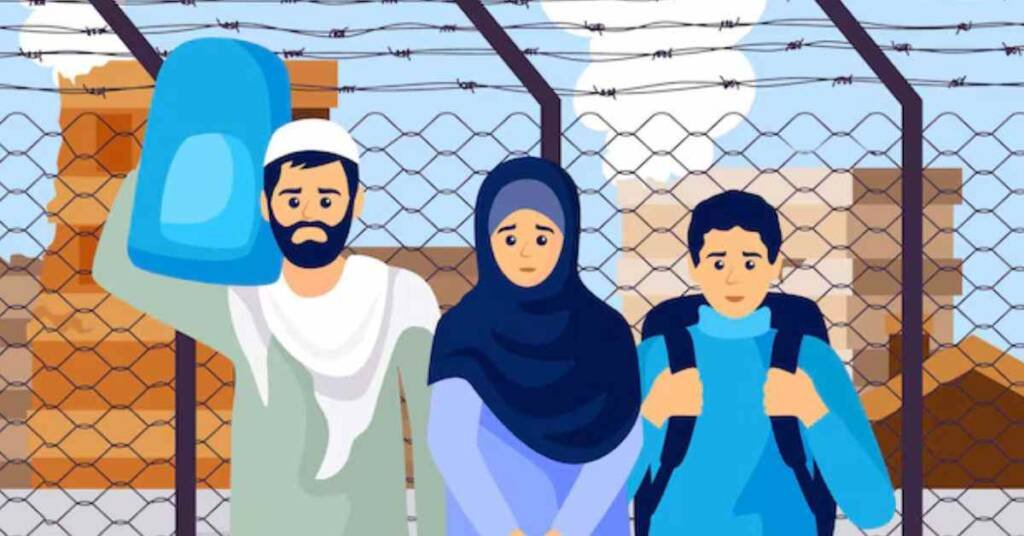The expansion of Islam in the world has led to cultural transformations, integration challenges, and, at times, security concerns. While Islam has over 1.9 billion followers worldwide and is one of the fastest-growing religions, its increasing influence in Western societies has sparked debates about multiculturalism, religious coexistence, and national security.
A major point of contention is the concept of Jihad in Islam. While the majority of Muslims practice Islam peacefully and emphasize moral teachings, extremist interpretations of Jihad have been linked to radical movements, terrorism, and security threats. This has created global challenges for peace and harmony.
In this discussion, we will analyze:
- The growth of Islam in the West
- The concept of Jihad: Classical vs. Extremist interpretations
- Cultural clashes between Islam and the West
- Radical Islamism and terrorism
- The global impact on peace and humanity
- Possible solutions for peaceful coexistence
1. The Growth of Islam in the Western World
Islam’s presence in Western countries has significantly increased over the past few decades due to several factors:
A. Immigration and Refugee Crisis
- Millions of Muslims have migrated to the West from countries facing political instability, civil wars, and economic hardships.
- Europe has seen a significant influx of migrants from the Middle East, North Africa, and South Asia.
- Countries like the United States, Canada, and Australia have also witnessed a rise in Muslim populations due to immigration policies favoring diversity and multiculturalism.
B. Higher Birth Rates Among Muslim Communities
- Muslim communities tend to have higher birth rates compared to native Western populations.
- Studies predict that Islam will be the largest religion in the world by the end of the 21st century.
C. Islamic Influence in Politics and Society
- As Muslim communities grow, they demand greater representation in politics, education, and law.
- Debates on Sharia Law, religious rights, and secular governance have intensified in many Western nations.
D. Cultural and Religious Identity
- Unlike other immigrant groups that often assimilate into Western culture, many Muslims retain their religious and cultural identity strongly.
- This has led to social tensions, especially in countries that emphasize secularism.
2. The Concept of Jihad: Classical vs. Extremist Interpretations
The word Jihad means “struggle” or “effort” in Arabic. In Islamic teachings, Jihad is categorized into two main types:
A. The Greater Jihad (Spiritual Struggle)
- This refers to an individual’s personal effort to follow the path of righteousness, self-discipline, and moral behavior.
- It is about self-purification, fighting against one’s own sinful desires, and becoming a better person.
B. The Lesser Jihad (Armed Struggle)
- Traditionally, this was interpreted as a defensive war when Muslims were attacked or oppressed.
- However, extremist groups have distorted this concept and turned it into a justification for aggression, terrorism, and violent expansion.
C. How Extremist Groups Misuse Jihad
- Radical organizations like ISIS, Al-Qaeda, Boko Haram, and Taliban promote an extremist ideology that views Jihad as a holy war against non-Muslims.
- They target the West and even moderate Muslims who oppose their violent methods.
- This has resulted in terrorist attacks, cultural conflicts, and global instability.
3. Cultural Clashes Between Islam and the West
As Islam expands in Western countries, there have been growing cultural and ideological clashes:
A. Differences in Secular vs. Religious Governance
- Western societies prioritize secularism, democracy, and personal freedom.
- Some Islamic groups demand Sharia-based laws, creating conflicts over governance and legal systems.
B. Women’s Rights and Gender Equality
- Many Islamic traditions impose restrictions on women’s dress, education, and employment.
- Western societies promote gender equality, leading to tensions over issues like the burqa ban, polygamy, and honor killings.
C. Freedom of Speech vs. Religious Sensitivities
- The West values freedom of expression, including criticism of religions.
- Some Muslims consider any criticism of Islam or Prophet Muhammad as blasphemy, leading to violent reactions (e.g., the Charlie Hebdo attack in France).
D. Religious Intolerance and Extremism
- Radical Islamic preachers in Western mosques often spread hate speech against non-Muslims.
- This has fueled concerns about radicalization among young Muslims.
4. Radical Islamism and Global Terrorism
While the majority of Muslims do not engage in violence, radical Islamist movements have contributed to global terrorism.
A. Terrorist Organizations and Attacks
- Groups like ISIS, Al-Qaeda, Hamas, and Hezbollah have carried out terrorist attacks worldwide.
- Some major attacks include:
- 9/11 Attacks (USA, 2001) – Over 3,000 killed.
- Madrid Train Bombings (Spain, 2004) – 193 killed.
- London Bombings (UK, 2005) – 52 killed.
- Paris Attacks (France, 2015) – 130 killed.
- Sri Lanka Easter Bombings (2019) – 269 killed.
B. Jihadist Influence in Europe and the West
- Radical mosques and online propaganda have led to homegrown terrorism in many Western countries.
- Islamic radicals reject Western values and attempt to establish parallel societies.
5. The Threat to Global Peace and Humanity
The rise of radical Islamism has severe consequences for world peace:
A. Destabilization of Nations
- Radical Islamic groups have toppled governments in countries like Afghanistan, Syria, Iraq, and Libya.
- This leads to civil wars, refugee crises, and human suffering.
B. Rising Hate and Division
- The actions of Islamist extremists have increased anti-Muslim sentiments and led to a backlash.
- Islamophobia is on the rise in the West, creating further divisions.
C. Suppression of Human Rights
- In radical Islamic regimes, women, minorities, and dissenters face oppression.
- Countries like Iran and Saudi Arabia impose strict Islamic laws, limiting personal freedoms.
Solutions for Peaceful Coexistence
To prevent global conflict and promote harmony, we must take the following steps:
A. Educating Muslims About True Islamic Values
- Scholars and leaders must emphasize humanity, ethics, and non-violence in Islam.
B. Fighting Radicalization
- Governments must monitor radical preachers, extremist websites, and terrorist networks.
C. Encouraging Interfaith Dialogue
- Peaceful coexistence is possible through mutual respect and cultural exchange.
D. Stronger Immigration and Security Policies
- Countries must ensure better integration of immigrants while protecting their national security.
While Islam is a major world religion with billions of peaceful followers, radical Islamist movements pose a real danger to global peace. Misinterpretation of Jihad has led to terrorism, cultural clashes, and security concerns worldwide. However, the solution is not hate or division, but education, awareness, and global cooperation to defeat extremism and uphold human values.
“Humanity, peace, and mutual respect should unite us all – beyond religion and ideology.”
Jai Hind! Jai Bharat! 🌍🚩







